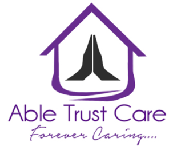A hospitality team member will recognise the customer’s needs, knowing how to match them to a products or service within the business, delivering satisfaction and loyalty for an organisation.
After completion of the Apprentice training standards apprentices will demonstrate how
to take reservations for individuals, group accommodation and event reservations. Understand requirements for processing personal and sensitive data.
The apprenticeship standards; knowledge, skills and behaviours delivering with employers and tutors from Able Trust Care through interactive learning sessions, take apprentices from entry through to the gateway and prepare for End-Point Assessment.
The role is very varied and although hospitality team members tend to specialise in an area, they have to be adaptable and ready to support team members across the business, for example during busy periods. Specialist areas in hospitality include food and beverage service, serving alcoholic beverages, barista, food preparation, housekeeping, concierge and guest services, reception, reservations and conference and banqueting.
Contents:
Customer: Apprentices recognise customer profiles in hospitality and how customers have different needs while delivering excellent customer service in line with business and brand standards.
• Business: Apprentices know the business vision and values, its main competitors and how it fits in the wider hospitality industry while trying to increase its market share, using promotions and unique selling points.
• People: Apprentices understand how to work with people from a wide range of backgrounds and cultures, and the importance of using appropriate methods of communication that are suitable for different situations and individuals’ needs in a variety of hospitality contexts.
• First line supervision: Apprentices understand how to support the supervision of new and junior team members to assist the line manager.
• Food Processing: Apprentices know how to perform basic food processing tasks such as preparation, cooking and regeneration of food in line with business/ brand specifications.
• Brand Standards: Apprentices know the brand standard for production and ingredients of menu items and why it is important to ensure the correct quality and quantity prior to producing dishes.
• Food Safety: Apprentices know the standard for the safe processing of food items in line with business and food safety standards.
• Equipment: Apprentices know how to set up, use and clean kitchen equipment, the correct storage conditions for food, equipment and cleaning products.
ASSESSMENT PRACTICE
Regular evaluation sessions with managers and learners will include performance observations, questions and answer sessions and professional discussions.
END POINT ASSESSMENT
End Point Assessment will include the following types of assessment:
• Functional skills at the required level
• Multiple Choice Questions
• Practical observation
• Professional discussion
• Business project
Entry -But it is expected that the individual would have worked with an operational role within the industry to start on this apprenticeship standard.
Duration – 12months
Level – This apprenticeship standard is set at level 2.










